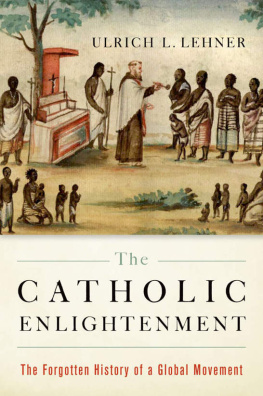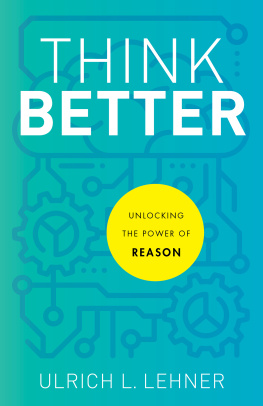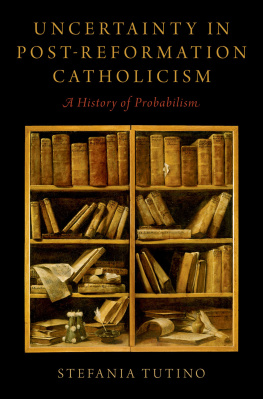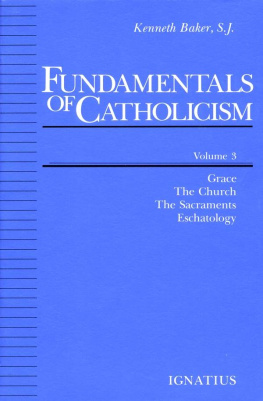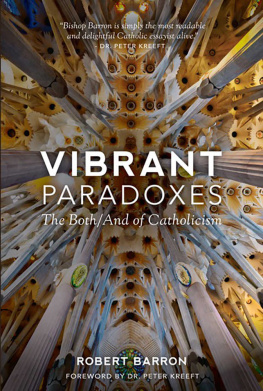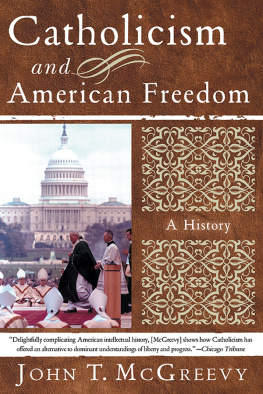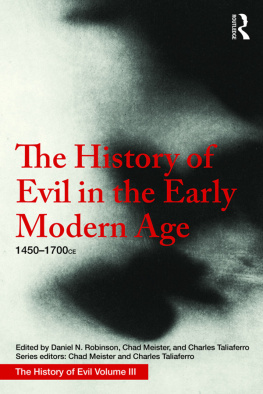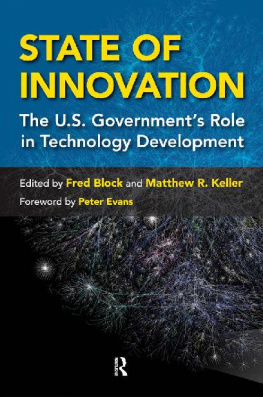This book is an important intervention in early modern studies. Dismantling the caricature of the periods Catholic theology as staid and oppressive, this volume highlights the innovation and creativity that was taking place, which saw the Church spread globally and help set theological courses that would rise to prevalence in the modern period.
James E. Kelly, Durham University, UK
INNOVATION IN EARLY MODERN CATHOLICISM
This volume demonstrates that the Catholic rhetoric of tradition disguised both novelties and creative innovations between 1550 and 1700.
Innovation in Early Modern Catholicism reveals that the period between 1550 and 1700 emerged as an intellectually vibrant atmosphere, shaped by the tensions between personal creativity and magisterial authority. The essays explore ideas about grace, physical predetermination, freedom, and probabilism in order to show how the rhetoric of innovation and tradition can be better understood. More importantly, contributors illustrate how disintegrated historiographies, which often excluded Catholicism as a source of innovation, can be overcome. Not only were new systems of metaphysics crafted in the early modern period, but so too was a new conceptual language to deal with the pressing problems of human freedom and grace, natural law, and Marian piety. Overall, the volume shines significant light on hitherto neglected or misunderstood traits in the understanding of early modern Catholic culture.
Re-presenting early modern Catholicism more crucially than any other currently available study, Innovation in Early Modern Catholicism is a useful tool for advanced undergraduates, postgraduates, and scholars in the fields of philosophy, early modern studies, and the history of theology.
Ulrich L. Lehner is the William K. Warren Foundation Professor at the University of Notre Dame. He has published more than twenty volumes on early modern history and the history of religion including Women, Enlightenment and Catholicism (Routledge, 2018) and his writings have been translated into seven languages.
First published 2022
by Routledge
2 Park Square, Milton Park, Abingdon, Oxon OX14 4RN
and by Routledge
605 Third Avenue, New York, NY 10158
Routledge is an imprint of the Taylor & Francis Group, an informa business
2022 selection and editorial matter, Ulrich L. Lehner; individual chapters, the contributors
The right of Ulrich L. Lehner to be identified as the author of the editorial material, and of the authors for their individual chapters, has been asserted in accordance with sections 77 and 78 of the Copyright, Designs and Patents Act 1988.
All rights reserved. No part of this book may be reprinted or reproduced or utilised in any form or by any electronic, mechanical, or other means, now known or hereafter invented, including photocopying and recording, or in any information storage or retrieval system, without permission in writing from the publishers.
Trademark notice: Product or corporate names may be trademarks or registered trademarks, and are used only for identification and explanation without intent to infringe.
British Library Cataloguing-in-Publication Data
A catalogue record for this book is available from the British Library
Library of Congress Cataloging-in-Publication Data
Names: Lehner, Ulrich L., 1976-editor.
Title: Innovation in early modern Catholicism / edited by Ulrich L. Lehner.
Description: Abingdon, Oxon; New York, NY: Routledge, 2021. | Includes bibliographical references and index.
Identifiers: LCCN 2021024099 | ISBN 9781032051963 (hardback) | ISBN 9781032051970 (paperback) | ISBN 9781003196501 (ebook)
Subjects: LCSH: Catholic ChurchHistory16th century. | Catholic ChurchHistory17th century.
Classification: LCC BX949 .I56 2021 | DDC 282dc23
LC record available at https://lccn.loc.gov/2021024099
ISBN: 978-1-032-05196-3 (hbk)
ISBN: 978-1-032-05197-0 (pbk)
ISBN: 978-1-003-19650-1 (ebk)
DOI: 10.4324/9781003196501
Typeset in Bembo
by codeMantra
INTRODUCTION Innovation and creativity in early modern Catholicism
Ulrich L. Lehner
DOI: 10.4324/9781003196501-1
Innovation and creativity are two buzzwords academics are nowadays pressured to use. This volume does not want to encourage this unhealthy attitude. It also does not primarily deal with the development of doctrine because that idea stems mainly from the nineteenth century.1 Instead, this volume plans to rediscover structures of innovation and creativity within early modern Catholicism. This is easier said than done. In the twentieth century, these two terms were used mostly in the arts and technology, and only recently in connection with societal progress; now they are being applied to a confessional culture in which continuity and tradition were of higher value than the modern appreciation of constant change.2 Nevertheless, such an enterprise is necessary not only to better understand the rhetoric of innovation and tradition, but also to overcome the disintegrated historiographies of the past, which often excluded Catholicism as a source of innovation. Certainly, this can be understood given repressive features such as the persecution of dissenters and the proscription and censorship of books; but by overemphasizing them early modern Catholic intellectual discourse has been downplayed or neglected, thus constructing a distorted view of the past.
To argue for a recalibration of historiography is not apologetics but merely an improvement of our understanding of the culture of early modern Catholicism. Persecution and oppression by Catholic institutions notwithstanding, we should be open to recognizing innovation wherever we find it and giving it its deserved place in the history of thought. It becomes clear that a particular Catholic approach to philosophical, theological, or cultural challenges is what one could call innovation through traditionthat is, a creative rereading of the past.3 Such innovation often only becomes visible by contrasting it to previous forms of thought; nevertheless, such a synchronic view also allows us to better grasp patterns of continuity. Censorship can serve as an example: a history as we envision it not only allows us a better understanding of the structures that supported innovation, but also the pragmatic actions taken to escape censorship and avoid institutional conflict by a rhetoric of dissimulation. Lastly, thinking about innovation in Catholicism also contributes to a better understanding of the development of imperialism and colonialism and can, as Elizabeth Kinkaid shows in this volume, have surprising results. It allows the historian to appreciate better the reception history of such innovations in non-European countries, as well as the creative innovations conceived in non-European countries.4
While innovation has become the topic of theological research in contemporary theology, especially in regard to the interpretation of the Second Vatican Council (19621965), early modern Catholicism, with the exception of the occasional mention of Melchior Cano (15091560),5 has been largely ignored.6 This, together with studies on censorship and the Inquisition, has led many to infer that the intellectual debates of early modern Catholicism were hostile to innovation or progress, and consequently not worth studying. Yet how can we, if we leave the intellectual debates of Spain, Portugal, France, Poland, Italy, and the Catholic parts of Germany and the Netherlands out of our description of early modern Europe, gain an adequate view of this time? How can we understand Catholic institutions such as Jesuit universities, the inquisitorial tribunals, or the formation of canon law, if we are unable to appreciate the intellectual quarrels they were involved in? Can we really understand the relationship between Jansenism and Cartesianism if we know hardly anything about the ways in which Augustinian orders taught Augustine and his theology in early modernity? How can we comprehend the development of modern biblical exegesis if Catholic engagement with the Bible is almost entirely uncharted territory?7 A top-down intellectual history would not help to close the lacunae, but rather a thorough engagement with the culture of Catholic intellectual discourse during the early modern era, outlining its innovativeness as well as its shortcomings and restrictions.8


